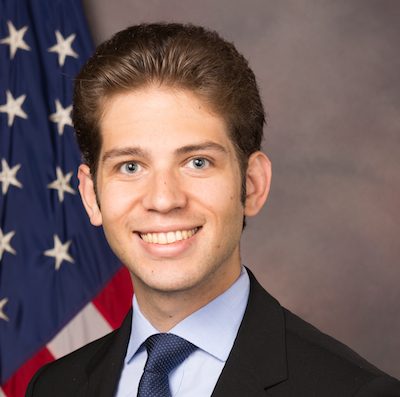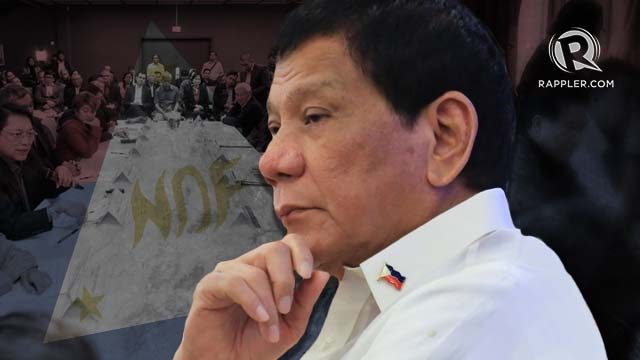SUMMARY
This is AI generated summarization, which may have errors. For context, always refer to the full article.

Like others who did not assume that the peace talks between the government of the Philippines and the National Democratic Front (NDF) were doomed from the start, I have wondered why President Rodrigo Duterte abruptly called them off. If Duterte saw nothing to gain from the talks from their inception, it is difficult to explain why he bothered with them in the first place. Even if he simply grew exhausted with the process, I suspect there may be other factors that led him to this decision.
The Information Bureau of the Communist Party of the Philippines (CPP) shared its own explanation, saying of the decision: “It is a strongman’s act of bad faith aimed at bullying the NDFP to bow to his terms of surrender.” To the CPP, and by extension the New People’s Army (NPA), Duterte is a servile despot beholden to the whims of the country’s capitalist oligarchy, military, and imperialist American benefactors.
It is easy to dismiss this interpretation as vintage Maoist propaganda written in the rhetorical style made vogue by Jose Maria Sison. Placing aside the conspiracy theories concerning US-Philippine collusion, however, the CPP’s polemic is worth considering. Although I would not agree with the CPP’s assessment of why the talks failed, they do offer a valuable lens for examining the resumption of hostilities.
The CPP’s assertions prompt two important questions: Did the “oligarchs” – big business owners and Mindanaoan political elites – gain anything from the collapse of the talks? What about the national security establishment? The answer, I find, is mixed.
Duterte’s declaration is a boon to local tycoons seeking coercive solutions to land and labor disputes. These practices are nothing new, but counterinsurgency operations under martial law enable human rights violators to act with impunity. Ironically, many of the governors and mayors of Mindanao are in a severely diminished position to take advantage of the situation since Duterte stripped over a hundred mayors and 7 governors of their authority over police in their barangays, cities, and provinces. While governors and mayors continue to support the administration, the resumption of hostilities between the government and NPA has left Mindanaoan elites in a much weaker position compared to their counterparts in Manila.
Through the pursuit of all-out war against the NPA and other violent actors, Duterte is centralizing his administration’s control over Mindanao by upending its local governments. Duterte’s control over local administration may even increase dramatically as he again considers postponing local elections and installing officers in charge in lieu of elected officials. In his consolidation of authority, Duterte is successfully exploiting the threat of the NPA and other real and imagined agents of domestic instability, and is conceivably testing the waters for nationwide martial law.
Commercial elites in Mindanao face a similarly bleak situation. Contrary to the bullish projections offered by the administration, Mindanao is not seeing the growth many have hoped for. According to the Mindanao Board of Investments, investment pledges in Mindanao declined by 63% in the first half of 2017. Key officials do not believe violence was a major cause, as the Autonomous Region in Muslim Mindanao (ARMM) saw a 181% increase in pledges despite the bloodshed in the ARMM municipality of Marawi City. It is too soon to know how the economy of Mindanao will perform in the long run, and perhaps the third quarter of the fiscal year will exhibit a different trend as the extent and toll of domestic instability becomes clearer.

Regarding the military and national police, the end of the talks comes in the midst of escalating operations against Moro jihadist groups like the Abu Sayyaf Group, the Bangsamoro Islamic Freedom Fighters, the Maute Group, and their foreign fighters. Faced with the prospect of a war on all fronts, the security establishment evinces select concerns. Throughout the talks, the Armed Forces have downplayed the NPA as mere bandits and terrorists rather than a revolutionary insurgent threat. Defense Secretary Delfin Lorenzana opposed the talks from the get-go, because he was convinced they would only allow the NPA to gather their strength. Philippine National Police chief Ronald dela Rosa appeared more ambivalent towards the talks, reasoning that so long as peace was attained, it did not matter whether it came from talks or fighting. To an extent, Lorenzana’s and Dela Rosa’s perspectives are understandable; the NPA did continue to extort communities and persons of interest, even committing attacks during the ceasefire, albeit at a slower rate than what was seen after the ceasefire.
A lack of faith in the peace process, however, does not necessarily translate into a desire for war. As the siege of Marawi continues, Lorenzana conveys an increasingly sober appreciation of his situation. By his own estimate, the military costs of the siege amount to P2.5 billion to P3 billion alone, without taking into account the costs of sheltering and caring for displaced persons. Despite this expenditure, Lorenzana believes that operations in Marawi may continue for another month or two. Despite the NPA’s demonstrated ability to inflict considerable losses against security forces and civilians, there are no signs that the military or police are taking more aggressive actions against the NPA, suggesting that the security establishment understands how costly such escalation would be at this time.
Barring a ceasefire resulting from mutual exhaustion and civil society pressure, an escalation is likely. Perhaps Lorenzana and Dela Rosa were prescient in dismissing the utility of talks, but they should not be overconfident in what they can achieve through prolonged counterinsurgency. If local administrations are further enervated under martial law while investors lose confidence in the stability of the region, a protracted campaign against the resilient NPA will likely serve only to compound Mindanao’s misery, and even spread its woes beyond its borders. – Rappler.com
Luke Lischin is an Academic Assistant at the National War College whose work has been published in outlets such as The Diplomat and the Brookings Institution’s Southeast Asia View. Luke’s research interests include political violence in the Philippines and the greater Southeast Asian region.
The views and opinions expressed in this article are those of the author and do not necessarily reflect those of the National War College.
Add a comment
How does this make you feel?
There are no comments yet. Add your comment to start the conversation.